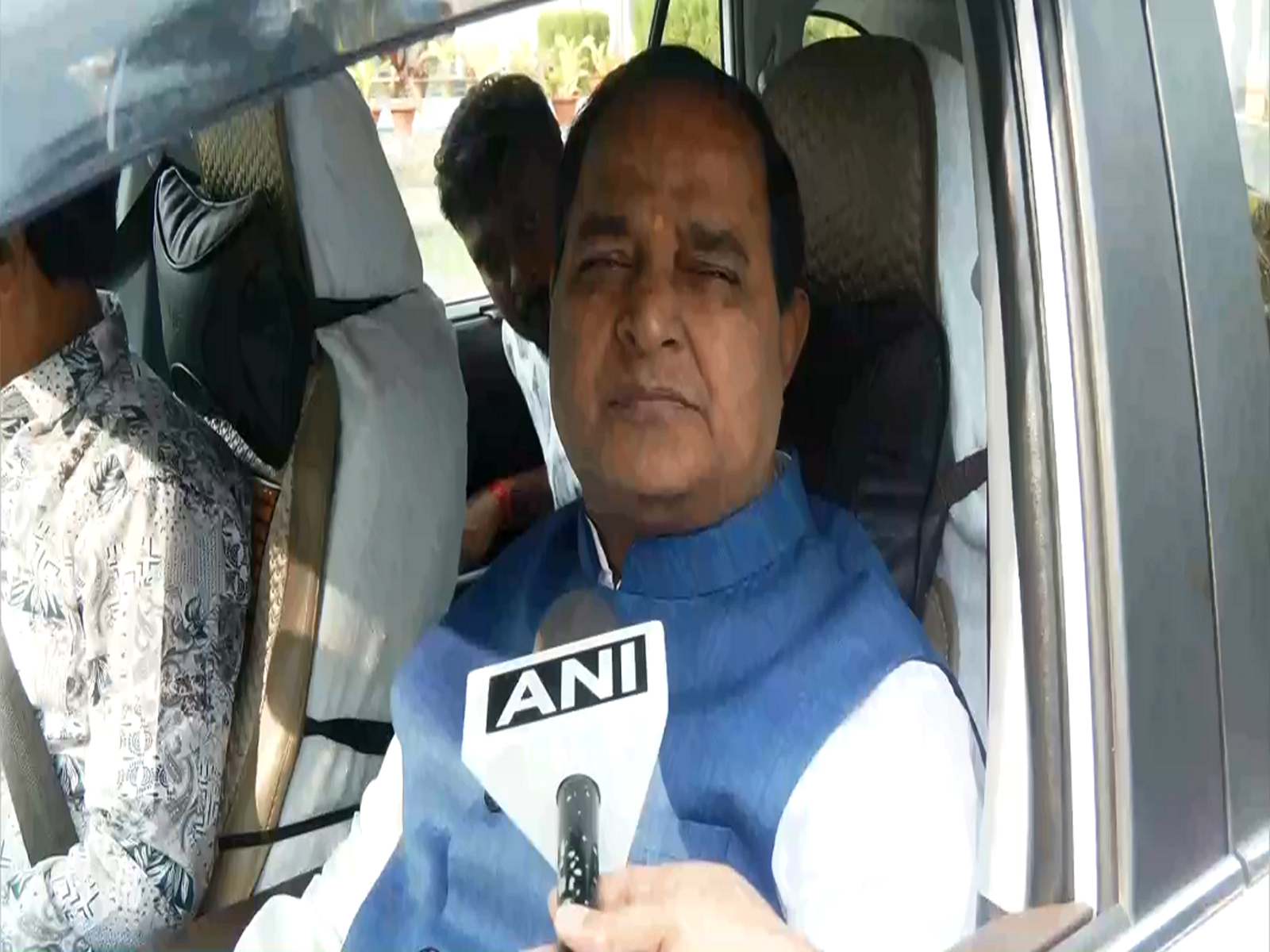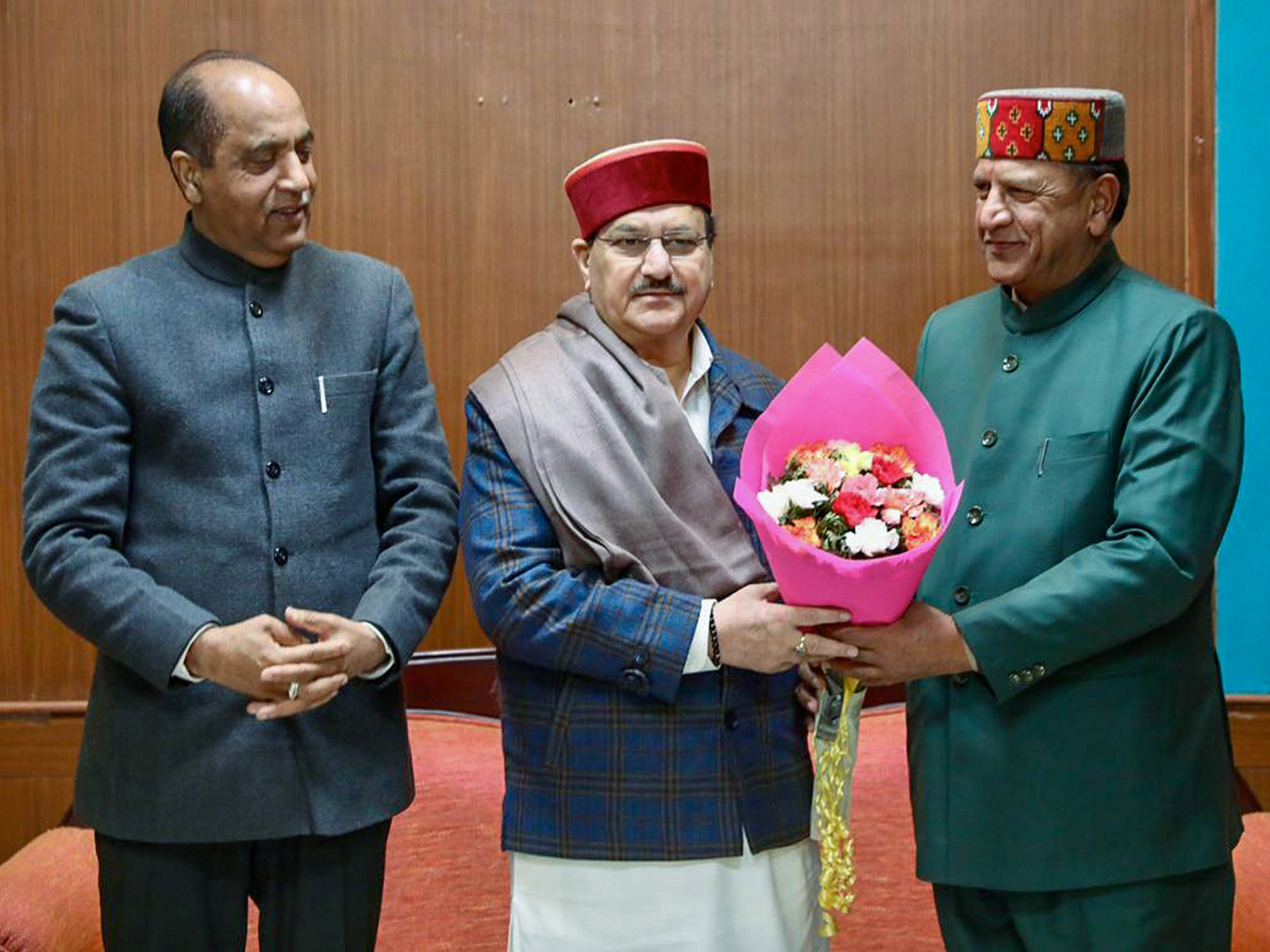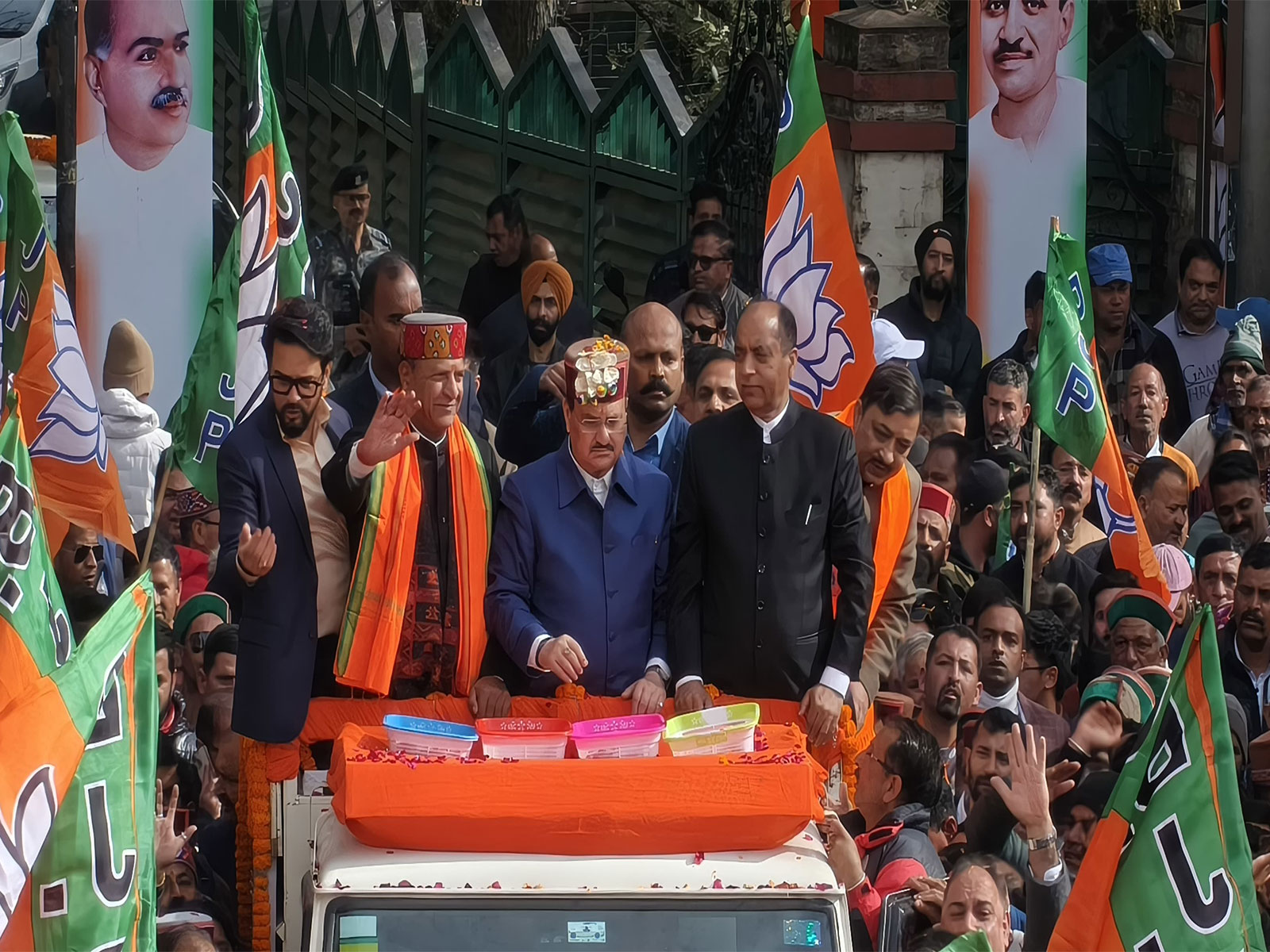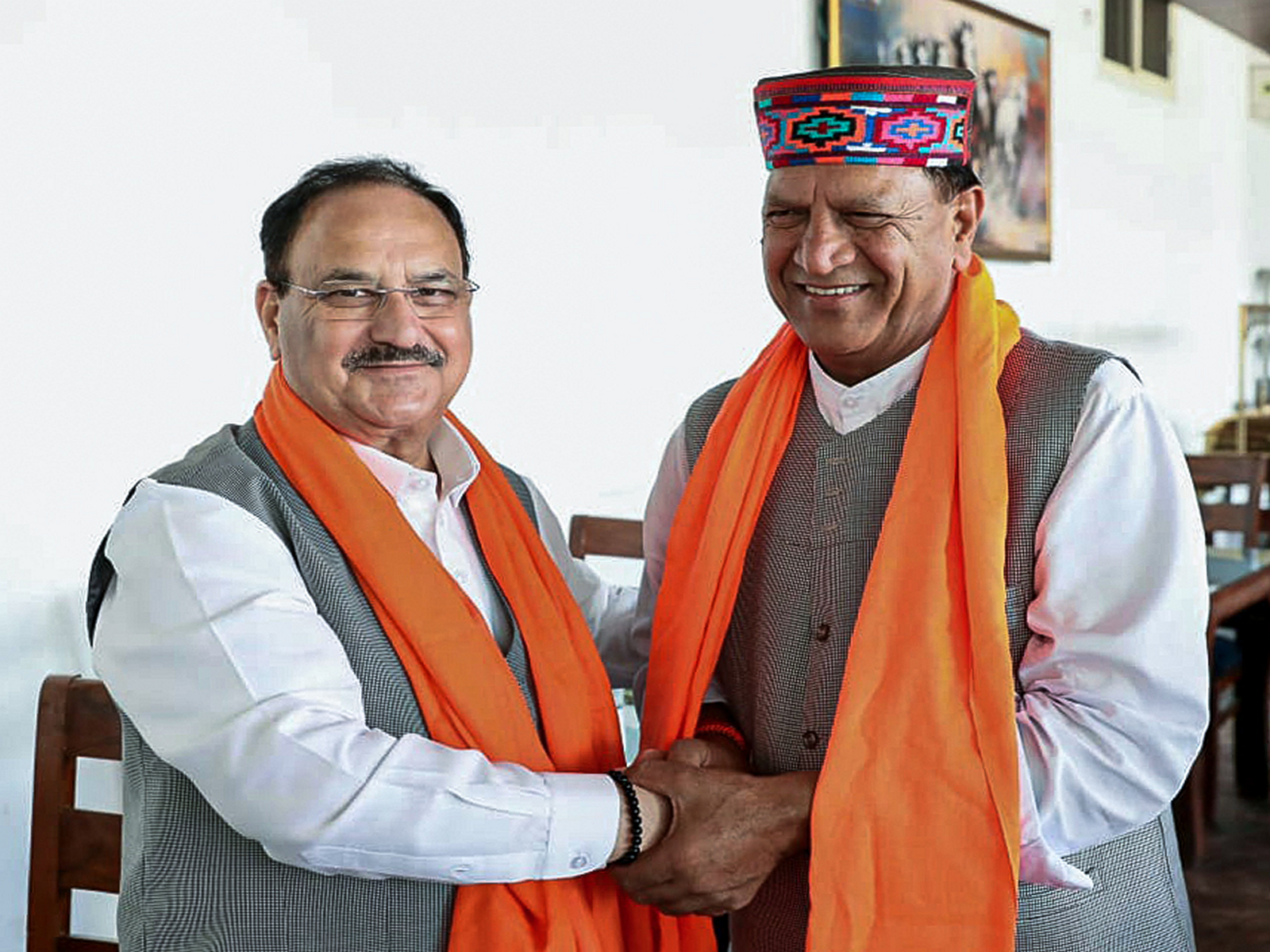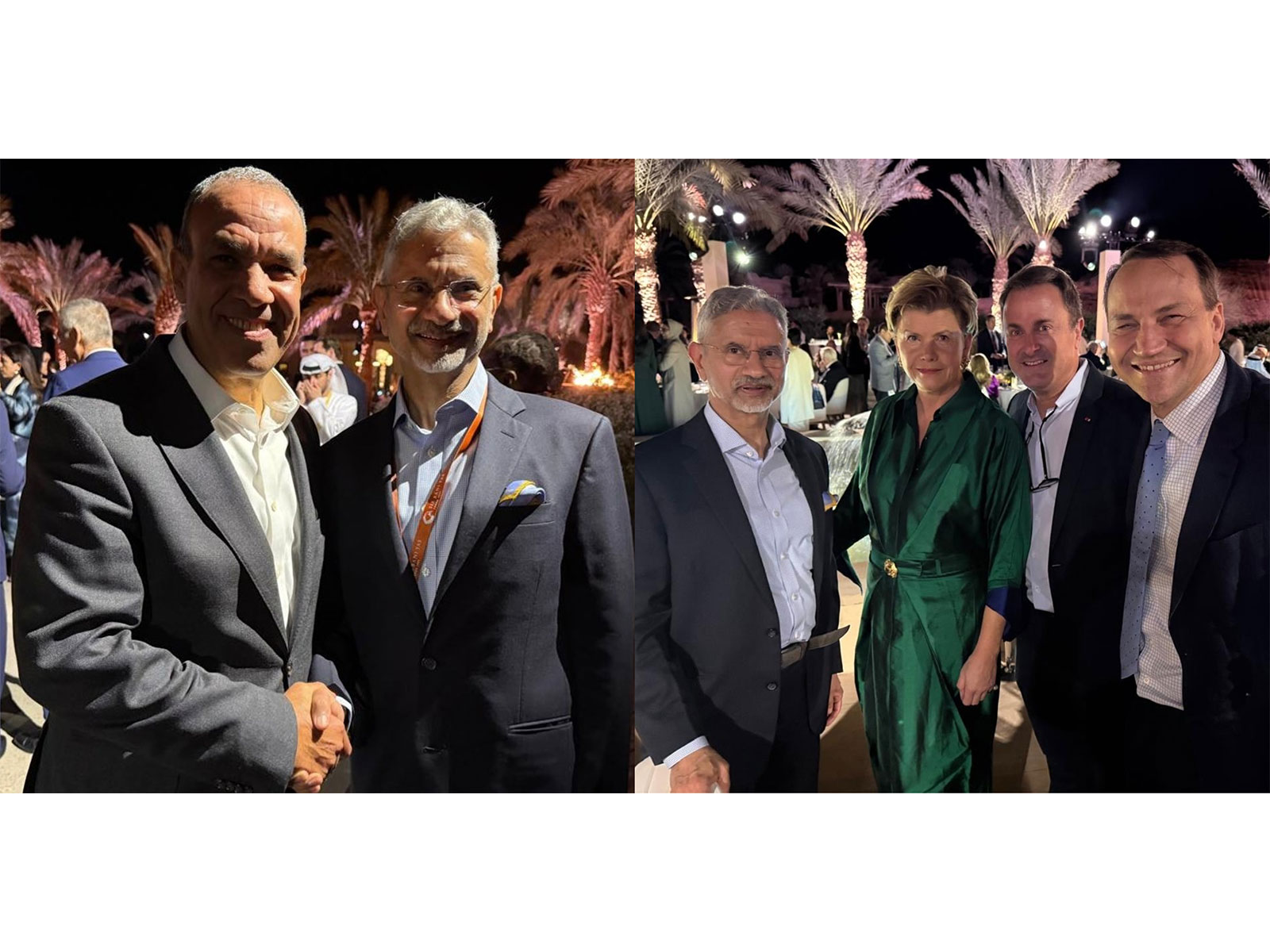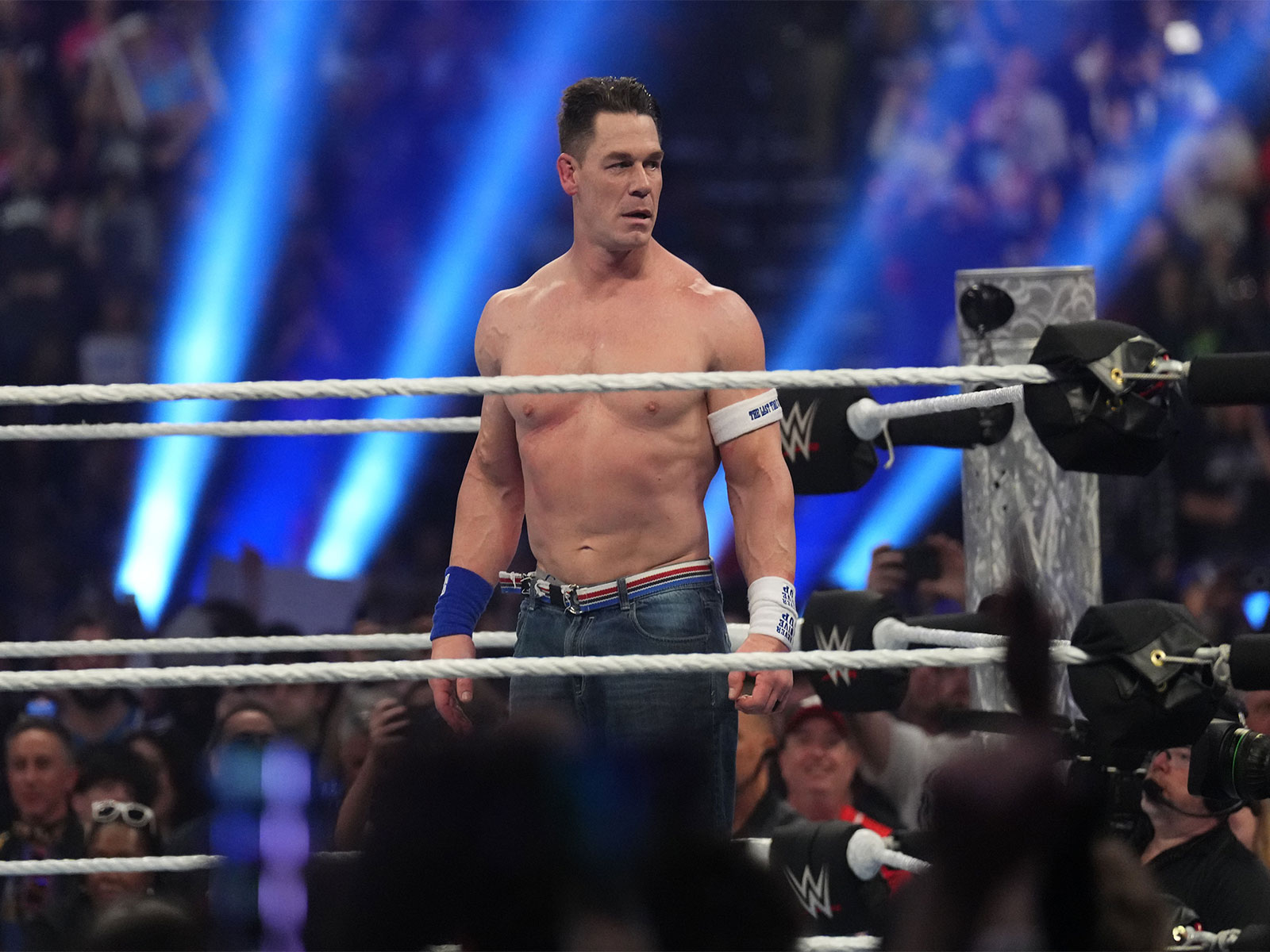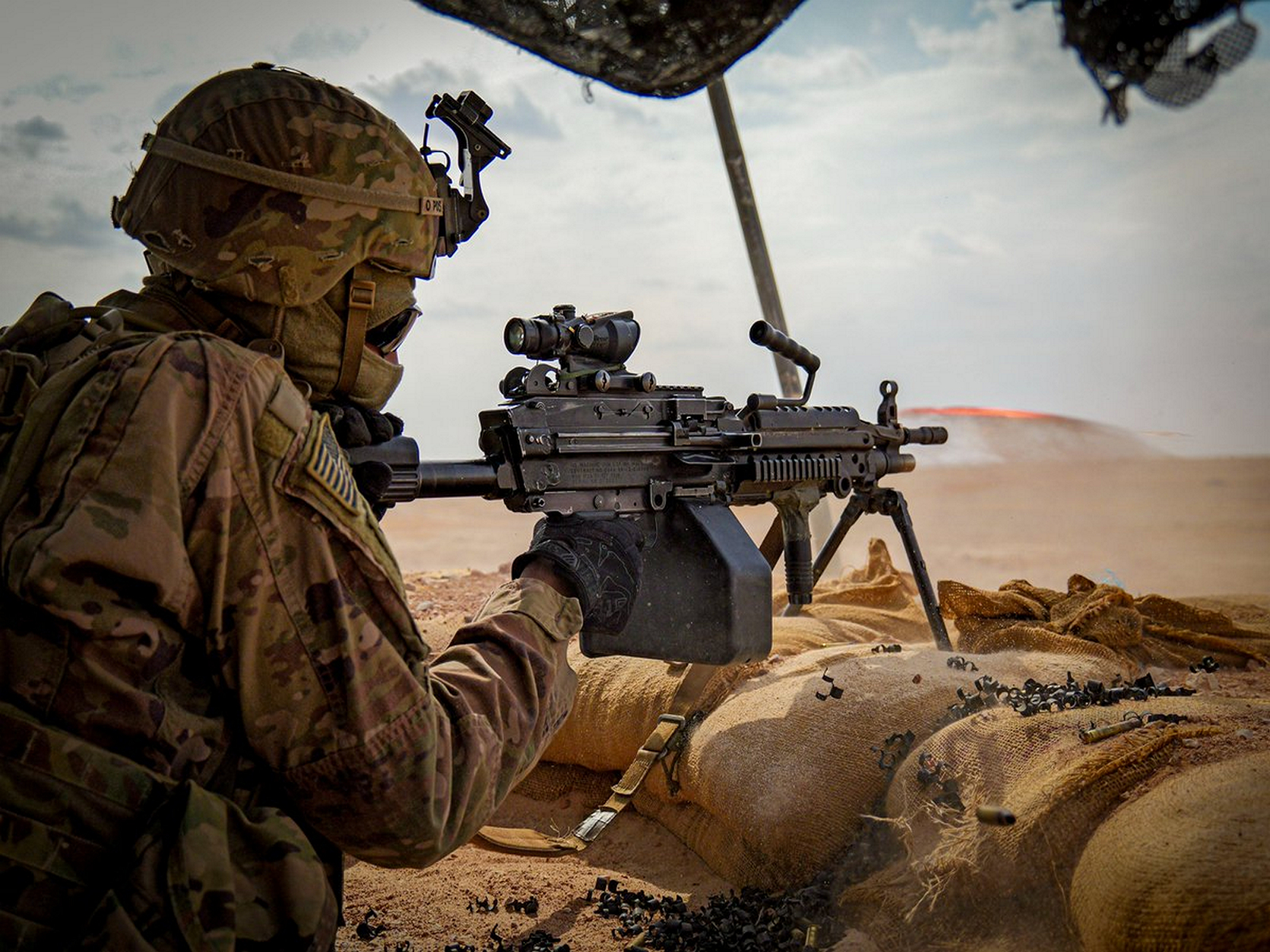Full transcript of Bangladesh PM Sheikh Hasina's interview with ANI
Sep 04, 2022

Dhaka [Bangladesh], September 4 : Bangladesh Prime Minister Sheikh Hasina, in an interview to ANI, said that the country believed in secularism and protecting minorities. She also expressed confidence that Bangladesh was safe from any debt-trap situation that Sri Lanka suffered.
In the candid discussion, Hasina called India a "tested friend" and lavished praise on Prime Minister Narendra Modi for rescuing Bangladeshi students stuck in Ukraine and also providing vaccines to fight Covid-19.
Hasina also shared details of the trauma she suffered in 1975 when several of her family members, including her father Sheikh Mujibur Rehman, were assassinated.
Here is the transcript of Hasina's interaction with Smita Prakash, Editor of ANI
Question ANI: Madam Prime Minister, thank you very much for speaking with ANI. We look forward to your visit to India in September. Could you tell us a little bit about what are your priorities in this visit? It is certain to bring India and Bangladesh closer. But what are your priorities?
Bangladesh PM: Well look, India is our tested friend. We always remember their contribution during our 1971 war. And beside that even 1975, when we lost all my family members. So, the then Prime Minister, she gave us shelter in India. Besides that, you see, these two countries, we are neighbours, close neighbours and I always give importance and priority to friendship with our neighbouring countries. Because I feel that this friendship will give us... It is not only leadership; no, it is for the people. So our priority definitely will be to bring good wishes and goodwill to the Indian people and the Prime Minister, President, you have a new elected President also.
And how to improve our business, trade and our bonding that is important. And my visit, it is important and I really thanks to Prime Minister Modi and also your honourable president. Both of them visited Bangladesh when we were celebrating our father of the nation birth centenary and also our independence, 50 years of our Independence Day, and our friendship with India. India recognised Bangladesh early on, so that bonding, I think that is our main priority. That their visit at such a time, even that time there was a Covid-19 but this pandemic, but beside that both of them honoured us, honoured our people and that visit really gave us a tremendous...you know.
ANI: Ma'am you spoke about trade relations between the two countries. India is the second largest trading partner. That makes it a little sensitive issue for many Indians who feel like, oh, we should be the largest trading partner of Bangladesh. But you are sandwiched between, you know, you're a smaller nation sandwiched between these two giants, if I may say, India and China. And I'm sure you are asked this many times by the western media that how do you balance the relationship?
Bangladesh PM: Our foreign policy is very clear. Friendship to all, malice to none, which my father, father of the nation, Bangabandhu Sheikh Mujibur Rahman, he uttered this in his address in UNO. And we follow his ideology. And my point is that we should focus on our people. How to give them a better life? How to improve their life? And I am always saying that we have only one enemy that is poverty. So let us work together. How to eradicate poverty, how to keep our people... because people from south Asia and also from China, India, everywhere where there is downtrodden people. We should ensure them a better life, fulfill their basic needs. And I always feel that yes, if there is any problem which is between China and India but I don't want to put my nose to that. I want development of my country and as because India is our just next door neighbour, we have very good relationship. We had many bilateral problems is true, but we solve many problems you know that. That sharing of Ganges water, then our land boundary, maritime boundary, then we had refugees in India for two decades. I brought them back, settled them down when I signed Chittagong Hill Tracts Peace Accord. So that way, and also which is very very important, I feel that exchanging the enclave, this is very very important. In many countries you know they just fight between themselves. But we didn't do it. With a friendly gesture we solved this land boundary and also exchanged our enclaves. And I really thanks to all the Members of the Parliament and Indian Government that they passed, well yeah, they passed that law and we could have solved it.
Yes, many people, especially western world ,they always ask me this question. But my point is that both India and China, I feel that we shouldn't fight. We should, if there is any problem with neighbouring country it can be solved bilaterally. That is very very important. Yes, when you are living just side-by-side some problem will come up or remain or you can solve it. So yeah, so we still we have little bit issues but I think that we will continue our dialogue and we should solve ourselves. And for our development we need cooperation from any country who offer us, which it of course, which is suitable for our country, so that way.
ANI:Okay. Ma'am for Prime Minister Modi, his neighbourhood first policy and the Look East, Act East policies. Now these two are very integral to the foreign policy. Recently the Indian External Affairs Minister was here and you offered the Chittagong port. Do you see more connectivity happening, more robust connectivity happening in this region between India and the northeast of India, and India and Bangladesh via the Chittagong port?
Bangladesh PM: As you know that during my first tenure I opened my door, the bus service started. Vajpayee ji was Prime Minister, that first we started and gradually then this connectivity we started. Now we have Chittagong port and Mongla port. I think 2018 we signed the agreement and we started it and now it is materialising. So that will give India the opportunity for their export-import as well as Bangladesh will be also a beneficiary and not only that I also have Chittagong airport, that they can use, even we have our Sylhet airport, both airports are International Airports and I am developing another airport that is... I mean Saidpur airport. Saidpur airport that will be a regional airport I declared that. So anybody it's not only India. India,Nepal, Bhutan, all the countries, they can use my ports, airports.
ANI: Yes ma'am. You've worked ceaselessly, tirelessly for the economic upliftment of your people especially you know in the rural areas. In India many are saying that you know the CEPA that is this Comprehensive Economic Partnership Agreement, if that fructifies, it will improve the economic conditions, the industry in your country and improve you know even for the urban population, it will improve the conditions. Do you see CEPA fructifying in this visit of yours?
Bangladesh PM: We'll discuss this matter, how to materialise it properly and then definitely I feel that any kind of cooperation that will enhance our relationship and also economically people will be the beneficiary.
ANI: I'm going to move in the same line you know, you have gone through so much of trauma in your personal life. Your family was assassinated while you know, many of us remember that phase of the 70s and 80s; there are many young Indians who are not aware. Ma'am, in your own words, could you tell me what you faced in those years?
Bangladesh PM: In 1971, when the war started, my father was arrested. I was, my mother was in custody, me too and I was expecting the first baby. But I thanks to India government, India people, India they supported our, you know, war of liberation, they support, not only supported war of liberation also they gave shelter to our refugees. Then comes 1975, it was so suddenly it happened. Only 15 days ago, my sister and myself we left the country. I went to Germany where my husband, he was a nuclear scientist. He was doing his post PhD research there. So we just went there. Just for a few days, couple of months, but suddenly...
ANI: I'm sorry to interrupt, when was your last meeting with your father before you left?
Bangladesh PM: It was 30th July.
ANI: You remember that clearly?
Bangladesh PM: Yeah.
ANI: Your mother and father?
Bangladesh PM: Mother and father... I was... as because my husband was abroad so I used to live in the same house. So that day everybody was there, my father, mother, my three brothers, two newly-wedded sisters-in-law, everybody was there. So all of the siblings and their, you know,spouses. They came to the airport so as to see us off and we met father, mother. That was the last day, you know. Then 15th August, in the morning, we heard this news but we couldn't believe it. It was really unbelievable. Unbelievable, that any Bengali could do it. And still we didn't know how, what really happened. Only there was a coup, and then we heard that my father was assassinated. But we didn't know that all the family members were, you know, they were assassinated. But that time, Mrs Gandhi immediately sent information that she wanted to give us, I mean, security and shelter. So we received,especially from Marshal Tito from Yugoslavia, and Mrs Gandhi. We decided to come back here because we had in our mind that if we go to Delhi, from Delhi we'll be able to go back to our country. And then we'll be able to know how many members of family are still alive.
ANI: How did you cope with that ma'am? To know that your entire family was wiped out?
Bangladesh PM: It's very difficult time.When I heard this news, theAmbassador Germany, Mr Humayun Rashid Chaudhary, he called me alone and then he told me. For few moments I didn't know where I was, but I thought about my sister, she is, actually she's 10 years younger than me so... I thought how she will take it. It is so difficult for her. Then when we returned to Delhi, at first they put us in a house with all security, because they were also worried about us.
ANI: Did you feel that you could be a target at that stage?
Bangladesh PM: There was a news like this because those who killed our parents, after their attack, (they attacked) three houses at a time.
ANI: To find you?
Bangladesh PM: No, to kill members, like my father's sister. Two sisters' houses and they killed family members simultaneously.
ANI: How many members were killed ma'am?
Bangladesh PM: Almost 18 members and some, mostly my relatives and then some maid servant and their children and then some guests, my uncle.
ANI: So it was to see that nobody from Bangabandhu's family ever comes back to power?
Bangladesh PM: Exactly. My younger brother was only 10 years old, so they did not spare him too. So when we returned to Delhi, it was perhaps 24th August, then I met Prime Minister Mrs. Gandhi. She called us and we... so there we came to know that nobody is alive. Then she made all the arrangements for us, a job for my husband and this Pandara Road house. We stayed there. So first 2-3 years actually it was so difficult to accept this, my children, my son was only 4-years-old. My daughter, she's younger, both of them used to cry. Come (let's) go to my mother, my father and they still remember my younger brother mostly... So... but then gradually, we have and well... as because I have children. My sister is there, so this sorrow, pain, just very difficult but still we have, well ... We have to think what to do...We should do something...we should, we cannot live like this, and this crime, not only killed my father, also they changed the ideology of our liberation war. Everything just, just one night, everything just changed. And those killers they are actually, they are haunting us. That they're trying to find out where we are, so when we lived in Pandara road; even we did... we couldn't, our name was changed.
ANI: In Delhi, in Pandara road?
Bangladesh PM: In Delhi yeah.
ANI: So you lived under a different name also?
Bangladesh PM: Different name, and it is so painful that you cannot use your own name, own identity.
ANI: Yes, I can imagine.
Bangladesh PM: Yeah... Because...because of the security purpose they didn't allow us.
ANI: Okay. So nobody from Bangladesh came to meet you in those years?
Bangladesh PM: At the beginning almost all... as... because of all my family members... those...
ANI: They were not allowed?
Bangladesh PM: Those who... well, those who survive and within this, like my auntie, and my two cousin sisters, and one brother they got bullet shot. So they got treatment and after that most of them, they just went to Calcutta. But first two-three years we couldn't meet anybody.
ANI: You were in India from 75 to?
Bangladesh PM: 81...
ANI: 81... it is... many say that, you know, people came to you and said you should come and they kept asking you to lead the Awami League and to come back to Bangladesh. But you were hesitant, you didn't want to get into politics at that stage, it was too traumatic?
Bangladesh PM: Actually... actually what happened, almost all the members, those who betrayed, besides that others were arrested and then you know what happened, there was another coup on 3rd November. So... then many of our leaders were assassinated. So, at the beginning nobody was allowed to come to us. Then gradually my auntie, two aunties, they were there. Gradually they started allowing them to come to Delhi or once I went to Calcutta.
ANI: Was there any doubt like that you didn't want to get into, you didn't want to come back?
Bangladesh PM: No... not that.
ANI: Too many memories of Dhaka?
Bangladesh PM: No... I want to... I wanted to come back. Definitely I wanted to come back to my country. But taking responsibility of such a big party, I never thought about it. But when I was in London, that time I took initiative to organise a political party. I used to travel a lot in different, and then our organization, we... I was... I work with our local in London, there I... there big community, that as per our... we... I work with them, and organise political party, and there first time I appear before people. Address a public meeting in York Hall 16th August 1980. There we demanded the trial of our...
ANI: Of the killers?
Bangladesh PM: The killers... In 79... my sister she went to Sweden, there our ambassador, he didn't join government, he resigned and he organised a meeting demanding the trial of the killers. So there she attended, and in 1980 I addressed. But I never thought to take any post or position, but definitely for democracy, for rule of law, and for trial of... these killers I was very vocal.
ANI: To bring them to justice?
Bangladesh PM: Yeah...To bring them to justice or bring them to book, so that the trial should take place, because there was a immunity to them. There was indemnity ordinance, they shoot, so you cannot demand or file any case against the killer. Killers got all type of facilities and immunity, this is very unlawful. The killer... and they killed... and it is in open and they claimed that yes, they committed this crime and they were very vocal. Because they thought they are very powerful, so I started...
ANI: Yes, the justice movement.
Bangladesh PM: And also many member of parliaments I met, in British parliament. So we demanded for justice. Also we set up a Commission, Sean McBride Nobel laureate, Sir Thomas Williams, QC, MP, all together we set up a Commission. And through that Commission we demanded that their investigation should take place. So... from that Commission Sir Thomas Williams, seek, you know, visa to come to Bangladesh, but they then maintained a dictatorial....didn't give any visa, didn't allow him to come to Bangladesh and investigate the killing. That was the situation and you can understand. On one hand we lost everybody, and other hand I cannot ask for justice. Justice was denied. So that was the situation that time. Then again I returned to Delhi, end of 80 or 81.
ANI: 81.
Bangladesh PM: Then 81, uh... when I returned to Delhi, 80s I returned then...Awami League had a conference, at that time they, in my absence, they declared me as the president of the party.
ANI: Ma'am I'll steer the conversation a little bit to strategic issues in our region. You are well aware of what happened in Sri Lanka and there are many observers who say that Bangladesh should guard itself from a similar situation, whether it's a Chinese debt-trap or whatever. Do you see any parallels, that the challenges that Bangladesh could face?
Bangladesh PM: Not exactly, no. Because our economy still it is very strong, though we faced this Covid-19 pandemic, now the Ukraine-Russia war. That has its effect here, but in a debt rate Bangladesh always pay timely all the debts. So our debt rate is very low. In context of Sri Lanka, our economy trajectory and the development it is very...I mean... very calculatively ...
ANI: Okay... we plan properly...
Bangladesh PM: And we take the plan, so as because it is a very calculative way we are developing, I feel that we will not face a similar situation... Not only that, in the policy matter, the moment pandemic started , Covid-19, I called upon our people, and also we provided all kinds of support and inputs, up to the village level and also encouraged our people to grow more food items, as much as food they can grow. I always supported them that what you should do. You should grow your food so that we should not depend on others...
ANI: Imports and such...
Bangladesh PM: And side-by-side this war that, it has bad effect no doubt about it, especially the things we import from other country. Now it is...
ANI: Yes...
Bangladesh PM: I think the whole world is facing economic problem. We are also. But yes there are some people they raise this issue. Oh, Bangladesh will be Sri Lanka, this and that. But I can assure, no, that will not happen. Because we... all our development plans, what we prepare and we implement, always we see that what would be the return? How people would be beneficiary? Otherwise I don't take any project with just spending money. No... We will spend money, we'll take loan but, after completion of this project what will be our return? How our economy will develop? And the people will be beneficiary, that is priority. So that way we are taking all the plans, programs. Unnecessary we don't spend any money.
ANI: Ma'am you spoke about your battle against COVID-19 and you've vaccinated almost more than 90% of your population. What do you have to say about the vaccine Maitri programme? Did Bangladesh benefit from it?
Bangladesh PM:I really thanks to Prime Minister Modi to take this initiative, and that way he... you know, contributed vaccine to not only Bangladesh also some south Asian countries, and it's really very very helpful. And it's really prudent initiative he has taken, and beside that we bought vaccines with our own money, and also many other countries also contributed. And we pursue our people for vaccination. Usually you know people from our country, especially the village level, even in some town also I found many people very much reluctant to take vaccine. They don't want to take the... you know... pinch of needle or 'sui nai lena hai' so... but we have to pursue them. We told them that this is nothing but it will save your life. So that way we engaged everybody, so that they make people... so it was really very good initiative, this Vaccine Maitri itself... very good initiative. I really support.
ANI: So there's been you know, western observers are often critical that SAARC, the countries... member countries in SAARC, they don't cooperate as much as other groupings do. But this vaccine Maitri and also the evacuation of students from your country, from our country, you know that happened, that took place because of cooperation between the two countries...
Bangladesh PM: That's true. I really thanks to Prime Minister again, that during this war between Russia and Ukraine, many of our students were just stuck up and they came to Poland to shelter, but when you evacuate your students, Indian students, they also brought our students back home. So it is really... You have shown a clearly friendly gesture. I thank to Prime Minister for this initiative.
ANI: And yet ma'am even though there is a cooperation between India and Bangladesh, but you know when it comes to water sharing, there's always been trouble. Even though there are more than you know I think 50 rivers which India and Bangladesh share. In spite of that the amount of cooperation that should have been there, probably it's slowed down. Even on Teesta, after so many years, their meetings didn't happen. Do you think that now, you know it can move forward?
Bangladesh PM: It is very sad that, we are in a... you know... downstream. So water is coming from India, so India should show more broadness. Because both the countries will be beneficiaries. So sometimes our people suffered a lot because of this need of water. Especially Teesta, we could not go for harvest and so many problems take place. So I think it should be solved but, yes we found that the Prime Minister is very... you know... eager to solve this problem, but the problem is in your country. So... we hope that it should, you know... it should be solved. It is... well... only Ganges water we share. The water we signed the treaty, but we have another 54 rivers. Yes... So it's a long standing problem, so it should be solved.
ANI: Right...
Bangladesh PM: But it depends on... mainly on India
ANI: On India... Ma'am recently...
Bangladesh PM: On India. India...should show more broad-mindedness
ANI: Right. Ma'am recently you know, you had told the minority in your country, the Hindu minority that you people have as many rights as I have. That was a huge reassurance given in any democratic country towards minorities. And yet in spite of that you know, Indians see videos of, like say a Hindu temple vandalized, random incidents that happened. But they're few and far between. Do you feel that the minority community in Bangladesh is as secure and as robust as the majority community?
Bangladesh PM: Well... as long as we are in power, we always give importance to that and I always tell them that you are our citizens. You should own our country. But some incidents sometimes take place but immediately we take action. It is sometimes... it happened, it's very unwanted situation but you know very well it is not only Bangladesh. even in India also sometimes minorities suffered. So I think that both the country should show their magnanimity and our part, you know Bangladesh is a secular country and we have many religions here. And the religion harmony is here very much. So one or two incident when it take place immediately... especially my party... my party people, they are very much conscious about it and also my government. We immediately take action, but... it... from both side I think it
ANI: It's like a...
Bangladesh PM: It should be more you know... uh I mean cooperation with each other.
ANI: You have worked tirelessly to preserve secularism in your country but you know the Blogger community in Bangladesh is...they're very robust they, they write a lot on social media, they feel that Islamic extremism it... tries ever so much to try and push Bangladesh towards extremism.
Bangladesh PM: Look extremism is everywhere. Even in India or other countries if you see the world, there many countries you can find it out. So as because it's a social media become very... very bad nowadays. Some people sometimes write something. Even sometimes it's not the bloggers but even other religion or so... Sometimes they write and then immediately people they come, but we have been trying our best to control it. We never support that... everybody has their...I mean each and every religion, they have their right to perform their religion properly, and one should not say such a thing that will hurt the other religion. This is not good. And any celebration, any, we all together we celebrate.
ANI: As a cultural event...
Bangladesh PM: As cultural event, even you can see in Bangladesh, during Durga Puja, so many places, we have Durga Puja and people celebrate all together. So the religion harmony is there but now some... here and there some incidents happen but our government immediately takes action against it.
ANI: Right. Ma'am border management and the fight against terrorism to ensure that terror groups don't find refuge in each other countries, there's been a lot of cooperation between India and Bangladesh. The north-east Indian states, you know... eastern India, North-Eastern India... many of them share a border with your country and cattle smuggling has become a hot button topic among these states. They fear that you know it is... they're coming into Bangladesh. Is there going to be more cooperation in border management between India and Bangladesh?
Bangladesh PM: Already the discussion is going on and also it has been reduced a lot. But still sometimes some incident takes place. So we discuss with India that they should show some patience and this cattle trafficking. Already you know nowadays in our country, now we don't depend on Indian cow much. We are growing our own, you know, cattle here because we need it. But some border smuggling takes place. So the two sides, the border forces, they are sitting together. Any incident happen, they hold the flag meetings, they discuss. So yes, we'll say the assurance that it will reduce so it should not take place.
ANI: Yeah another issue within India is about, you know, which people are conflicted about is about the Rohingya issues. We have refugees in India. You have thousands of them in your country. On one side is the humanitarian aspect of it but there is also a growing demand that they should be repatriated, but safely. How do you look at this situation?
Bangladesh PM: Well you know... for us it's a big burden. India is a vast country, you can accommodate but you don't have much. But in our country... we have 1.1 million Rohingya. So well... we are consulting with international community and also our neighbouring countries, they should also take some steps so that they can go back home. This Rohingya yes... on humanitarian ground we give them shelter and providing everything but during this COVID, we vaccinated all the Rohingya community but how long they will stay here. So in the camp they are staying. Our environment hazard is there. Then some people engage in drug trafficking or some arms conflict, women trafficking, day by day it is increasing. So as quick as they return home it is good for our country and also for Myanmar. So we have been trying our best to pursue them, we're discussing with them and also the international community, like ASEAN or UNO, then other countries. That time they were facing many troubles you know that, so we've given them shelter, but now they should go back to their country. But India as a neighbour country, they can play a big role on it I feel that.
ANI: Ma'am you took over the mantle from your father. In India, you know... now there's a... there's a lot of talk about family-based politics and that it is detrimental but in Bangladesh that's not an issue at all, is it?
Bangladesh PM: That's true. That is not an issue.
ANI: Would you like your son to join politics and...?
Bangladesh PM: Look... he's now a grown up man. So it's up to him but he's working for country. Like the Digital Bangladesh we set up, all these satellite or submarine cable or computer training, everything these digital system, it is his idea and he is you know... assisting me and he is doing it but he never thought about taking any position either in party or ministry. No, he didn't. Even in our party conference there was a tremendous demand for him. Then I asked him, you go to the microphone and tell what you want to do. And he did it. He said no, I don't want any position in the party at this moment. Rather those who are working here they should get this post. Why I should occupy one post? I am with my mother, I am working for the country and I am assisting her, so I'll do it. So that way he thinks. So it is not that I have to make him or I have to do it, no.
ANI: It's his decision.
Bangladesh PM: It depends on the people you see.
ANI: You know one keeps reading and one is reading reports and seeing that the condition of, you know people in Bangladesh has improved vastly. Now another task that you know... another thing that the western media keeps looking is why does Bangladesh still not have a viable opposition? Why is there no robust opposition in your country?
Bangladesh PM: Look... now opposition a... our opposition very strong not very weak, but the men to create but the men to... Awami League...
ANI: If I may interrupt you ma'am there's a robust opposition only to see that Sheikh Hasina doesn't become Prime Minister.What I mean is you know... an opposition which is not just got remove Sheikh Hasina, if I may say.
Bangladesh PM: You are true. They tried to kill me, several times, yeah, but I survived. Even though in the broad daylight there was a grenade attack. I don't know how I survived. Our party leaders, workers they just covered me, made human shields so they received all the splinters but I... I was totally safe. Then there was open fire in my meeting, I survived. They placed a huge bomb in my meeting place. Somehow it was discovered by just a simple personality? Man. So I survived. I don't know its... you can ask God, Allah. Allah is helping me perhaps, maybe Allah has given me some job to do. But the point is about opposition, look in our country like BNP and Jatiya Party, both the parties were formed by a military dictator. First they took over power, then they become politician and just change the dress and become political leader, and they form government when they were in power. So sitting in power when anybody from any party uh... usually they don't have that connection with the downtrodden people, common people. But Awami League is a party you can say, there's the... in the subcontinent Awami League is the oldest political party. In 1949 this party was formed. So we have actually our root, main root and our main power is our people. So when people found that yes, if this party remains in power then we receive good opportunity to build up our future or our life. So that is the main thing. During my tenure with the country become self-sufficient in food. We distribute free food. Our social safety net, although we do old-age people, disabled people. We pay allowances for them. Landless people, they're getting houses, they are getting primary healthcare free of cost. Then for education, within two miles we build up the primary schools, government and private all. Then I opened up every sector, the private secto, business, so private business I'm giving all kind of incentives because I want to create job opportunities.
ANI: So there's nobody in the opposition then, who can promise or want to do what you're doing, isn't that the case?
Bangladesh PM: Well, if you go through our history you will see that when other party was in power, what was the situation in the country. Just to remain in power, keeping or grabbing the power, they killed our party leaders, workers.
ANI: Yes
Bangladesh PM: There were coup d' etat in this country almost 19 to 20 times. They kill people, they throw bombs or they set fire in the train or private car or CNG or rail. Everywhere they killed people. That is their, you know... movement in opposition. So when people see that they're killing innocent people in the name of movement, then why they should support them and during their time, the corruption, all through their corruption, they made lots of money. So then the terrorism... Can you imagine that in this country one day, within one hour, 500 places bombs blasted?
ANI: Serial blasts?
Bangladesh PM: Yeah. So, that way all the misrule and misdeeds and terrorist activities and corruption, nepotism, so people rejected them. That is the main. But when Awami League again come back to power, what for? Country's development.We didn't indulge in taking revenge or anything. All our energy, our power everything we use for development of the country, the connectivity which is very very important. Now with or....You, you... asked me about Sri Lanka's condition. Now I can tell you that Bangladesh, we build up Padma Bridge with our own money. We didn't take any money from anybody. So now I showed the people that yes, if we wish we can do it.
ANI: Thank you so much Ma'am, thank you very much.

